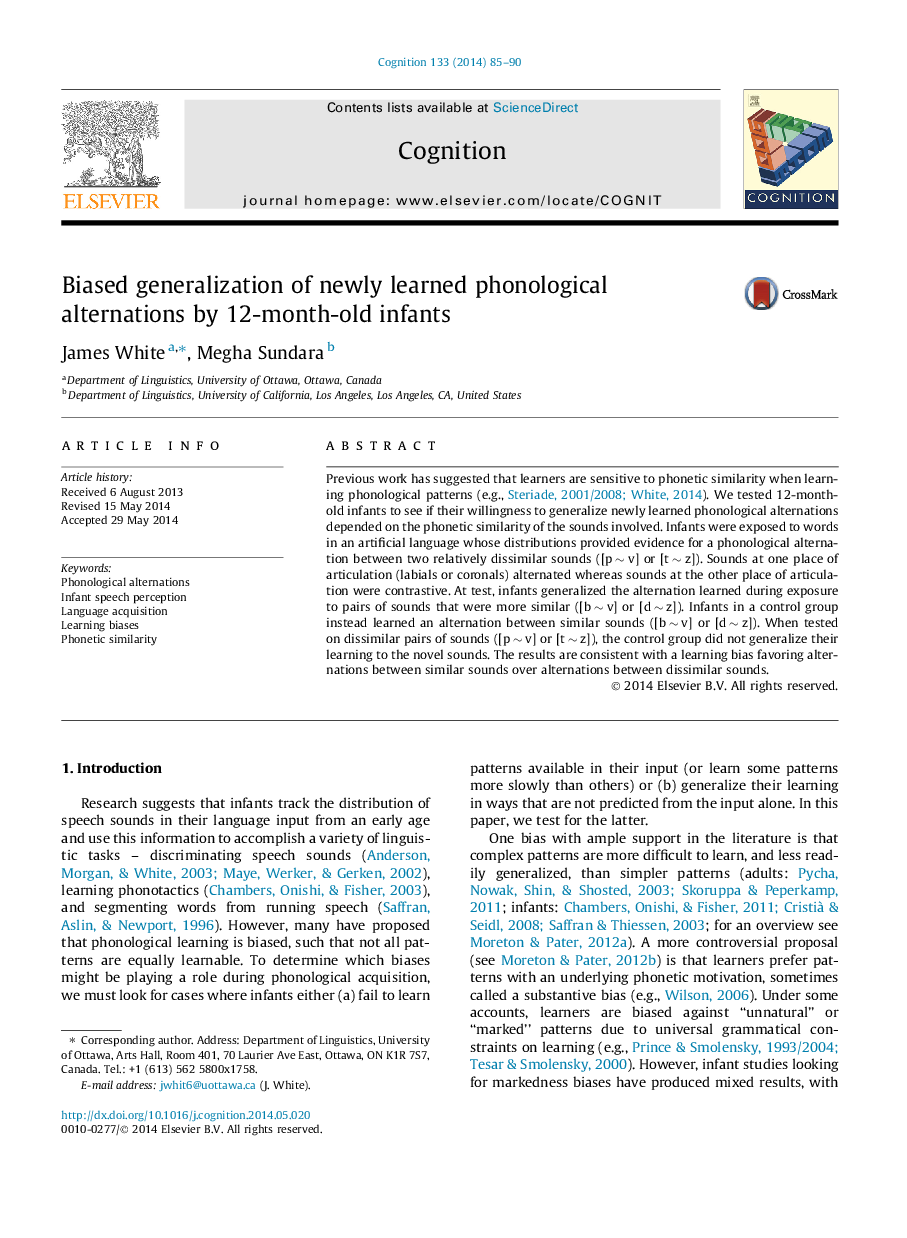| Article ID | Journal | Published Year | Pages | File Type |
|---|---|---|---|---|
| 10457746 | Cognition | 2014 | 6 Pages |
Abstract
Previous work has suggested that learners are sensitive to phonetic similarity when learning phonological patterns (e.g., Steriade, 2001/2008, White, 2014). We tested 12-month-old infants to see if their willingness to generalize newly learned phonological alternations depended on the phonetic similarity of the sounds involved. Infants were exposed to words in an artificial language whose distributions provided evidence for a phonological alternation between two relatively dissimilar sounds ([p â¼Â v] or [t â¼Â z]). Sounds at one place of articulation (labials or coronals) alternated whereas sounds at the other place of articulation were contrastive. At test, infants generalized the alternation learned during exposure to pairs of sounds that were more similar ([b â¼Â v] or [d â¼Â z]). Infants in a control group instead learned an alternation between similar sounds ([b â¼Â v] or [d â¼Â z]). When tested on dissimilar pairs of sounds ([p â¼Â v] or [t â¼Â z]), the control group did not generalize their learning to the novel sounds. The results are consistent with a learning bias favoring alternations between similar sounds over alternations between dissimilar sounds.
Related Topics
Life Sciences
Neuroscience
Cognitive Neuroscience
Authors
James White, Megha Sundara,
